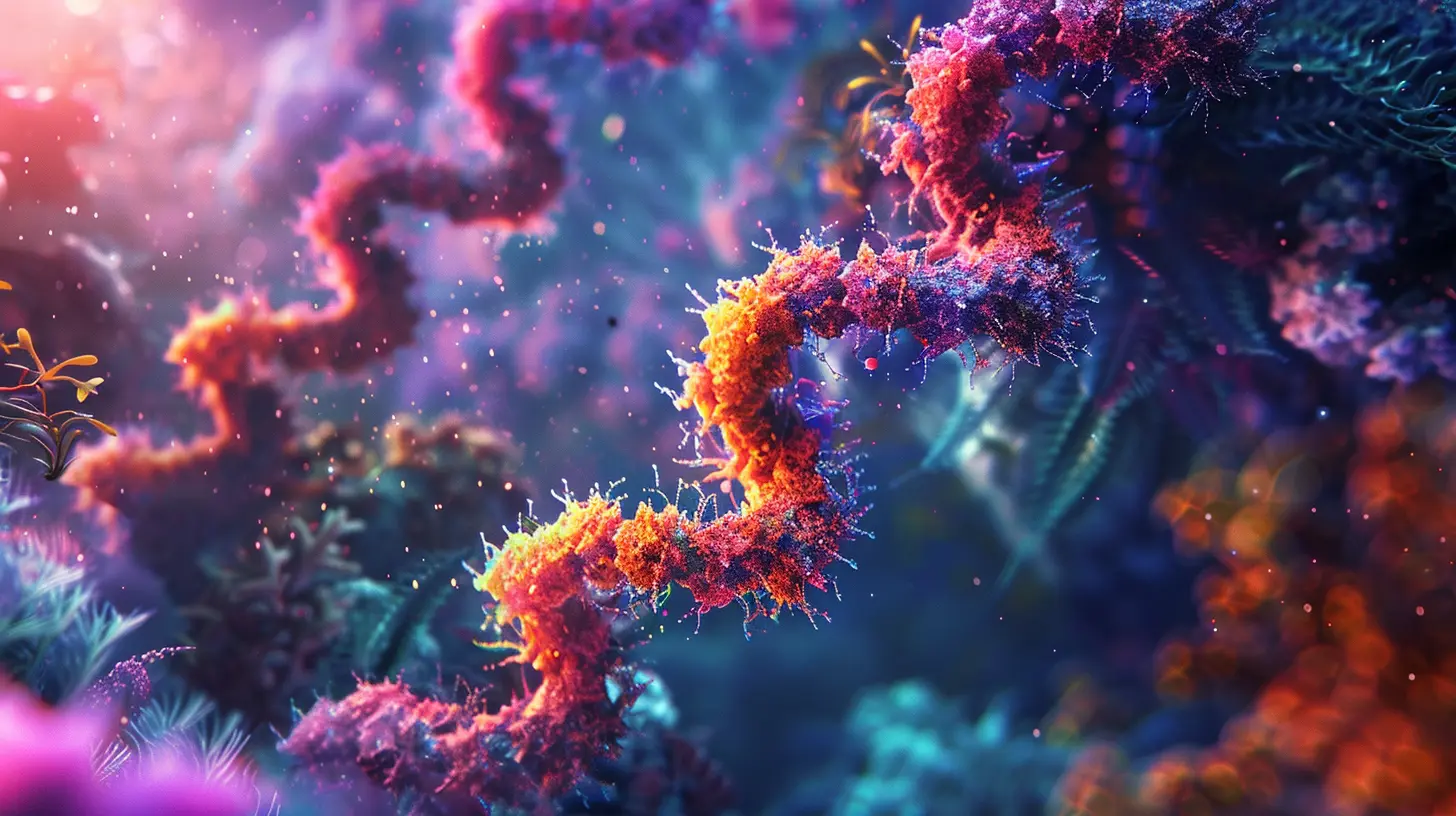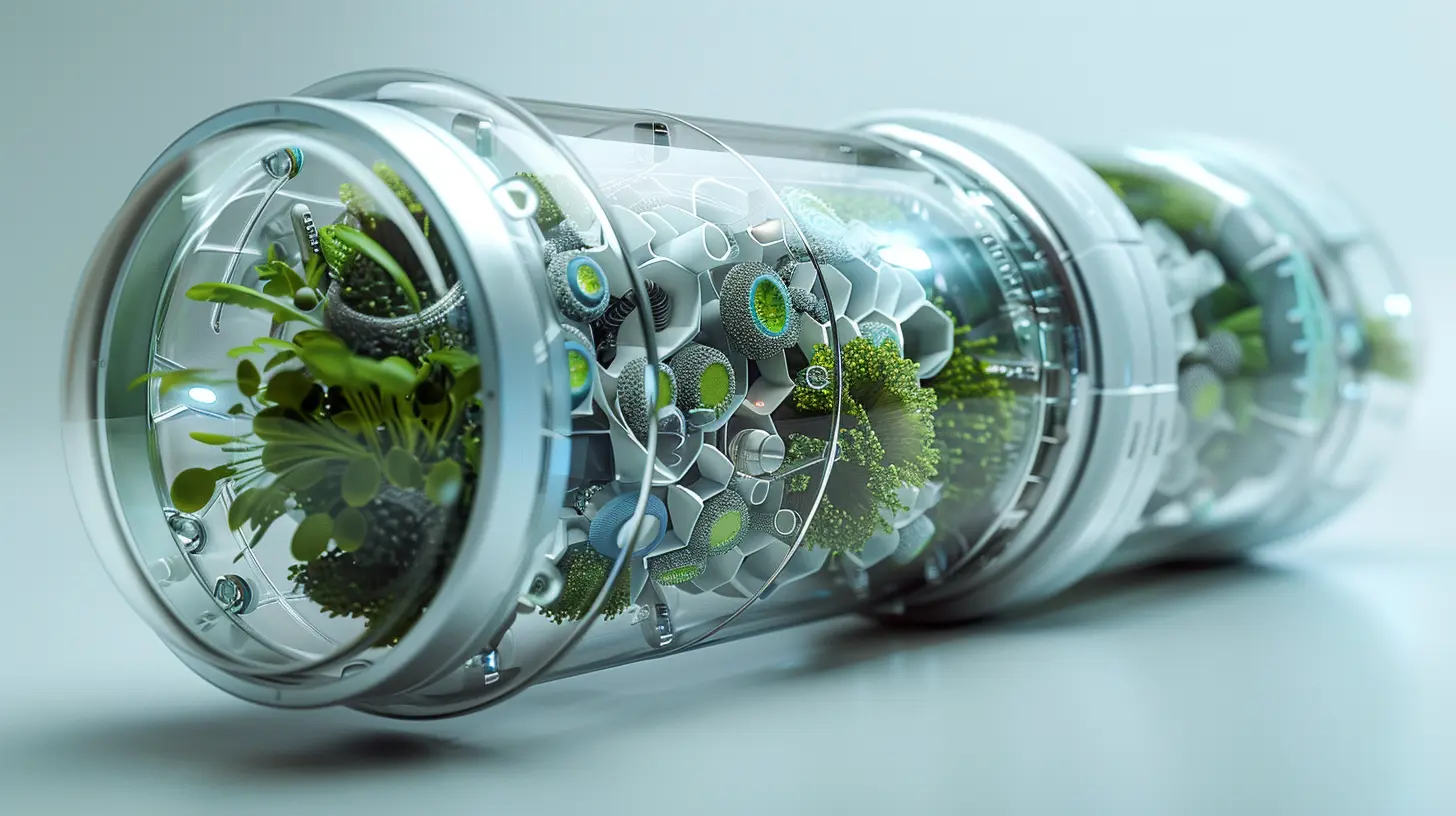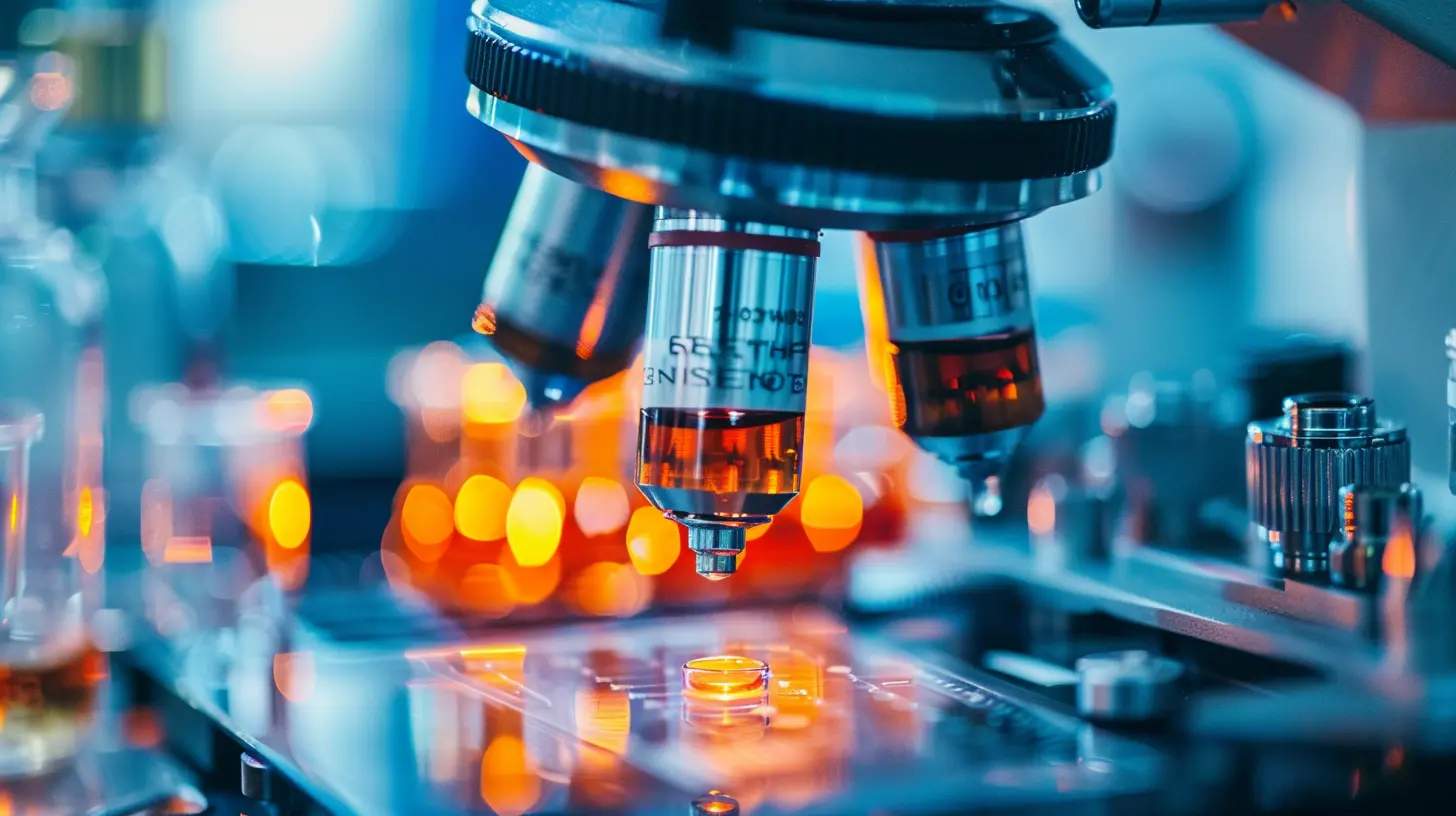How Synthetic Biology Could Redefine Human Health
18 July 2025
Imagine being able to design life itself—tweaking the tiniest components of human biology like software code to cure diseases, slow aging, and enhance health in ways we never thought possible. That’s not science fiction anymore. It’s the promise of synthetic biology. And it's coming at us faster than we can say "genetic engineering."
So, what exactly is synthetic biology, and why is everyone (from scientists to Silicon Valley investors) so hyped about it? More importantly, how could it change your life, your health, and even your future?
Let’s break it down.
What is Synthetic Biology, Really?
At its core, synthetic biology (often called “synbio”) is all about reprogramming life. It combines biology, engineering, computer science, and genetics to design and build new forms of life—or redesign existing ones. Think of it like building LEGO models, but instead of plastic bricks, you’re using DNA.Instead of just observing natural biology, we’re now designing it, customizing it, and reshaping it. It’s the difference between using Google Maps and actually creating the map. It’s a step beyond genetic engineering—more precise, more powerful, and packed with possibilities.
How Synthetic Biology Differs from Traditional Biotechnology
You might be wondering—haven't we already been genetically modifying stuff for years? Yes, we have. But there's a difference.Traditional biotech is like editing a sentence—you might swap a word here or add a comma there. Synthetic biology is more like writing a brand-new story from scratch.
It doesn't just tweak an existing gene. It builds whole new systems and organisms using standardized genetic parts, kind of like building circuits in electronics.
And that's where the magic begins.
The Role of Synthetic Biology in Human Health
Now on to the real question—how can this change your health?Synbio isn’t just messing with DNA for kicks. It’s being used to create new ways to prevent disease, treat illness, and even eliminate some of the world’s deadliest health threats.
Let’s dig into the key ways synthetic biology could transform human health.
1. Personalized Medicine, Built from the Genes Up
Imagine walking into a clinic where your treatment isn’t based on averages or trial results—it’s built specifically for your own DNA. That’s what synthetic biology makes possible.By reading, rewriting, and analyzing your genome, doctors can identify the exact mutations or abnormalities you have. Synbio allows for therapies designed uniquely for you. Not the general population—you.
We’re talking about:
- Custom-made vaccines
- Gene therapies for rare disorders
- Tailor-made drugs with minimal side effects
It’s like having a health plan made just for your body. That’s the kind of personalized medicine synbio can offer.
2. Next-Level Disease Prevention
What if we could prevent diseases not with pills, but by engineering the human body to resist them from the inside out?Synthetic biology is unlocking that potential.
For example, researchers are redesigning gut bacteria to fight off diseases from within. These engineered microbes can detect harmful pathogens or imbalances and release healing compounds or alert the immune system. Your gut becomes your body’s security team.
And let’s not forget future vaccines. During the COVID-19 pandemic, synthetic biology platforms like mRNA technology revolutionized vaccine development. Moderna's and Pfizer's vaccines wouldn’t exist without synbio tools. They were created in record time and could adapt quickly to new variants.
That’s not just impressive—it’s game-changing.
3. Curing Genetic Disorders at the Source
From cystic fibrosis to sickle cell anemia, many diseases are deeply rooted in our genes. Historically, treatment meant managing symptoms. With synthetic biology? We might just be able to fix the genes themselves.CRISPR is a big player here. It's like a pair of molecular scissors that can cut out and replace faulty DNA. But synthetic biology goes further—building entirely new genes, creating safeguards, and making the process safer and more efficient.
We're not just editing. We're redesigning. That means a possible end to hereditary diseases.
4. Bioengineered Organs & Tissue Regeneration
Here’s a wild thought: What if the next kidney transplant you need doesn’t come from a donor—but from a lab?Synthetic biology is paving the way for bioengineered organs, grown using a patient’s own cells. These organs would be tailor-made, genetically matched, and could potentially eliminate transplant waitlists forever.
Even tissues like skin, cartilage, and muscles are being grown synthetically for use in surgeries, wound healing, and injury recovery.
It’s not just future medicine. Trials are already happening.
5. Tackling Antibiotic Resistance
Antibiotic resistance is a ticking time bomb. We're running out of effective treatments for even simple infections. But synthetic biology offers hope.How? Scientists are designing new kinds of antimicrobials that bacteria haven’t adapted to—yet. They're also engineering viruses (called bacteriophages) that specifically target antibiotic-resistant bacteria without harming healthy cells.
It’s like biological snipers instead of chemical carpet bombs. More precision. Less collateral damage.
6. Revolutionizing Cancer Treatment
Cancer is notoriously difficult to treat because it’s so good at hiding from the immune system. But what if we could give our immune cells a makeover?Synthetic biology is behind cutting-edge treatments like CAR-T cell therapy, where a patient’s T cells (a type of white blood cell) are genetically modified to better recognize and attack cancer cells.
Researchers are also working on “smart” cancer therapies that activate only in the presence of cancer biomarkers, leaving healthy cells unharmed.
It’s not just about killing cancer—it’s about outsmarting it.
Ethical Considerations: Just Because We Can—Should We?
Now, with all this power comes responsibility, right?Synthetic biology opens the door to some big ethical questions. What are the risks of redesigning organisms? Could engineered therapies be misused or lead to unintended consequences? Should we edit embryos or enhance human abilities beyond what's "natural"?
We’re entering territory where the lines between science and sci-fi blur.
Just like with AI, regulation and oversight will be key. We need frameworks that ensure safety without stifling innovation.
The future is exciting—but let’s not rush headfirst without asking the hard questions.
The Current Hurdles Blocking the Synbio Revolution
As powerful as synthetic biology is, it’s not all smooth sailing. Here are some real-world limitations:- Cost: Designing synthetic organisms isn’t cheap (yet).
- Complexity: Biology is messy. Even with the best tools, predicting how a tweak will affect an entire system is tough.
- Regulation: Government policies haven’t caught up, which can slow down research and development.
- Public perception: Freaked out by "Franken-organisms"? Yeah, that’s a thing. Public trust is crucial.
But here’s the kicker—these problems are getting worked on, fast.
Big Names Betting Big on Synbio
This isn’t just a niche topic anymore. Major companies and governments are pouring billions into synthetic biology.You’ve got:
- Moderna and Pfizer using synbio for mRNA vaccines
- Ginkgo Bioworks engineering microbes for medicine and industry
- Synthego and CRISPR Therapeutics developing gene-editing platforms
- The U.S. and China investing in national bio-innovation strategies
When the big players move in, it’s a sign that transformation is on the horizon.
The Future: From Medicine to Human Enhancement?
So, what next?Synthetic biology could eventually remove the line between “curing” and “enhancing.” We might not just treat weakness—we might upgrade it.
Imagine:
- Enhanced immune systems that prevent all viral infections
- Cells that adapt to surrounding toxins or radiation
- Slowed aging by manipulating gene expression patterns
We’re not there yet. But it’s not impossible. The building blocks are here. And the architects are hard at work.
Final Thoughts
Synthetic biology is opening a new chapter in human health—one where biology is programmable, disease is optional, and the boundaries of life itself are redefined.Yes, it’s complicated. Yes, there are risks. But the potential? It’s massive. We're not just treating health problems anymore—we're redesigning the concept of health from the ground up.
Get ready. The biotech revolution isn't coming. It’s already here.
all images in this post were generated using AI tools
Category:
Future TechAuthor:

Reese McQuillan
Discussion
rate this article
1 comments
Inez Nelson
Great insights! Excited to see how synthetic biology advances healthcare solutions!
July 25, 2025 at 11:01 AM

Reese McQuillan
Thank you! I'm excited too—synthetic biology has immense potential to transform healthcare!


